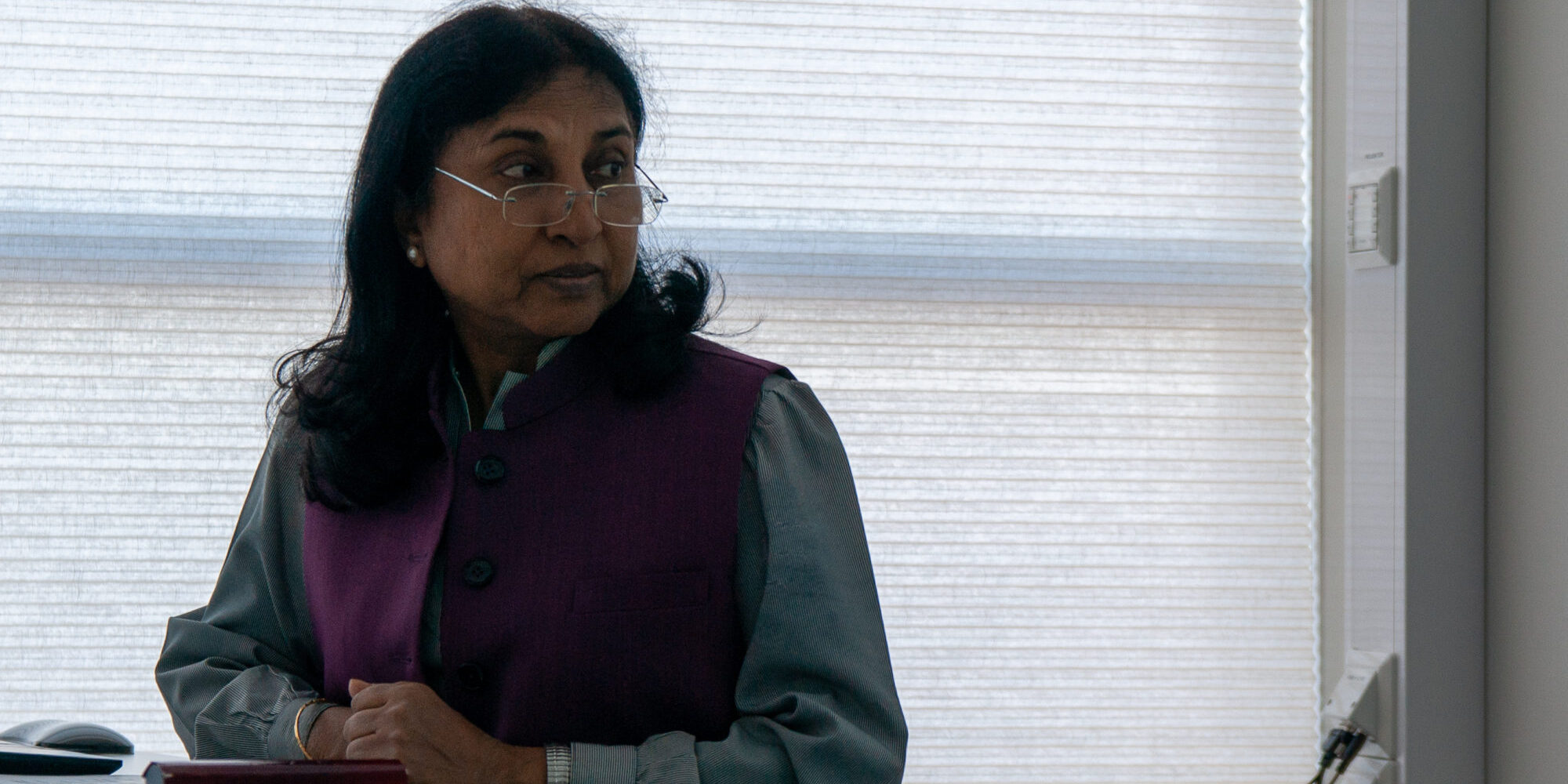
Gender equality important for food security
- Gender equality is needed to achieve UN’s Sustainable Development Goals, says professor Bina Agarwal.
Last updated: 07.09.2019
In a lecture at Ruralis this week she challenged the often-cited claim that all the Sustainable Development Goals (SDGs) depend on the achievement of Goal 5 – Gender Equality. She examined this claim through the lens of household food security which is a fundamental aspect of sustainable development.
She argued that although SDG 5 has substantial potential in helping to achieve household food security, it also has limitations. The potential lies in the attention this Goal pays to women’s access to land and natural resources, which can enhance their ability to produce and procure food. Its limitations lie in failing to identify the production constraints facing women farmers, and the importance of forests and fisheries as key sources of food.
She suggested that the ways forward lay in a bold interpretation of SDG 5 and establishing synergies with other SDGs, especially SDGs 1 and 2, on poverty, hunger, as well as SDG 15 as it relates to forests, SDG 14 as it relates to fish resources, and SDG 13 on Climate action.
Her lecture was based on a paper published in Current Opinion in Environmental Sustainability 2018, 34:26–32).
Bina Agarwal is Professor of Development Economics and Environment, University of Manchester, UK, and earlier Director and Professor at the Institute of Economic Growth, University of Delhi, India. Her research interests cover Land and Property Rights; Poverty and Inequality; Food Security; Community Forestry; Small farmer Cooperation; and the Political Economy of Gender. The open lecture was part of her visit to Ruralis.
Agarwal also discussed her ongoing work on group farming with Ruralis researchers. Norway is among only a few countries globally where group farming or joint farming is an important type of farming.
